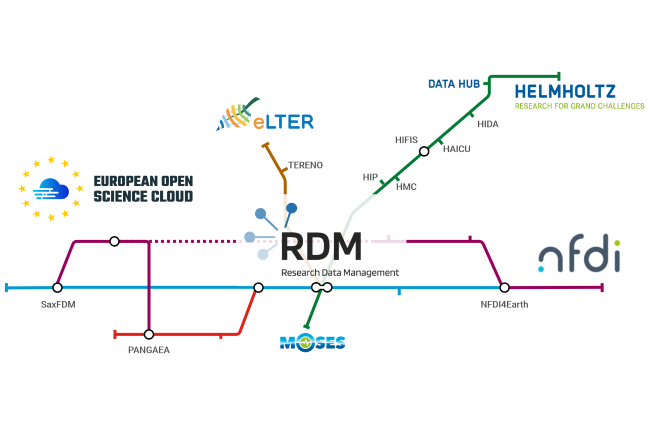
Partners and Collaborations
Together with the scientific stakeholders of the UFZ, we cooperate with a wide range of partners and initiatives to help shaping the development of research data management on a national and international level. The following is an overview of projects and initiatives for which we provide expertise and infrastructure:
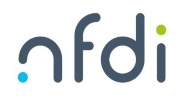
|
As part of the setting-up of a National Research Data Infrastructure (NFDI), the UFZ is participating in the consortia NFDI4Earth, NFDI4BioDiversity, NFDI4Chem, NFDI4MicroBiota, NFDI4BIOIMAGE, FAIRagro and NFDI4Objects. Information on NFDI represententives at the UFZ can be found here. |
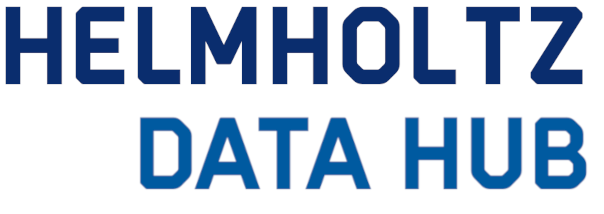
|
In the Helmholtz research field Earth and Environment, we are a shaping partner in the development of the TERRA Hub of the DataHub initiative. |
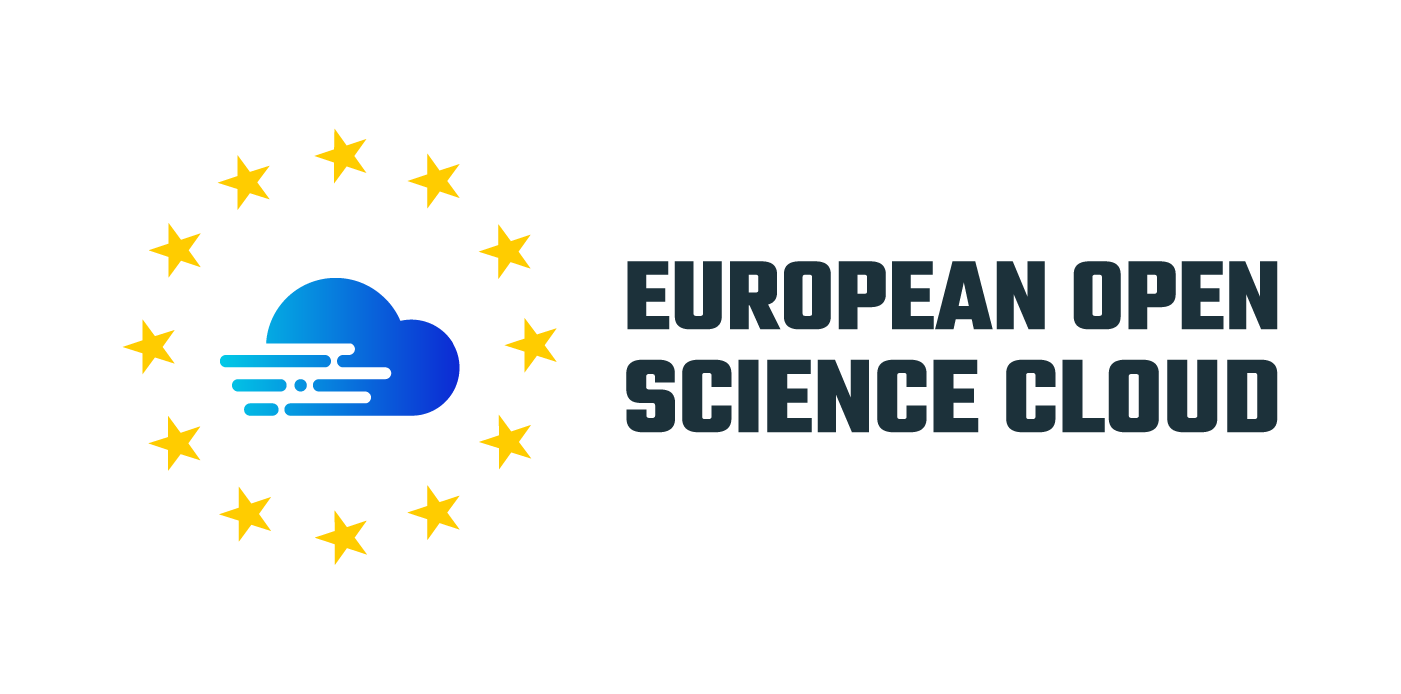
|
With our activities in the areas of data infrastructure development and digital transformation, we contribute to a more sustainable research data landscape promoted by the European Open Science Cloud (EOSC). |
.jpg)
|
eLTER (European Long-Term Ecosystem and socio-ecological Research Infrastructure) is a large-scale contribution to the further development of european research infrastructures for long-term ecosystems. The 162 sites in 22 countries provide data on long-term trends in environmental change. The RDM team is involved in data integration and IT services. |

|
The effects of dynamic events on earth and the environment are studied by MOSES (Modular Observation Solutions for Earth Systems) .The sensors being used for this purpose provide a multitude of data to be recorded, annotated and stored in a structured way. |
.jpg)
|
The observation platform TERENO (Terrestial Environmental Observatories) combines spatially and temporally recorded long-term data from various representative regions of Germany in order to develop and evaluate environmental process models. |
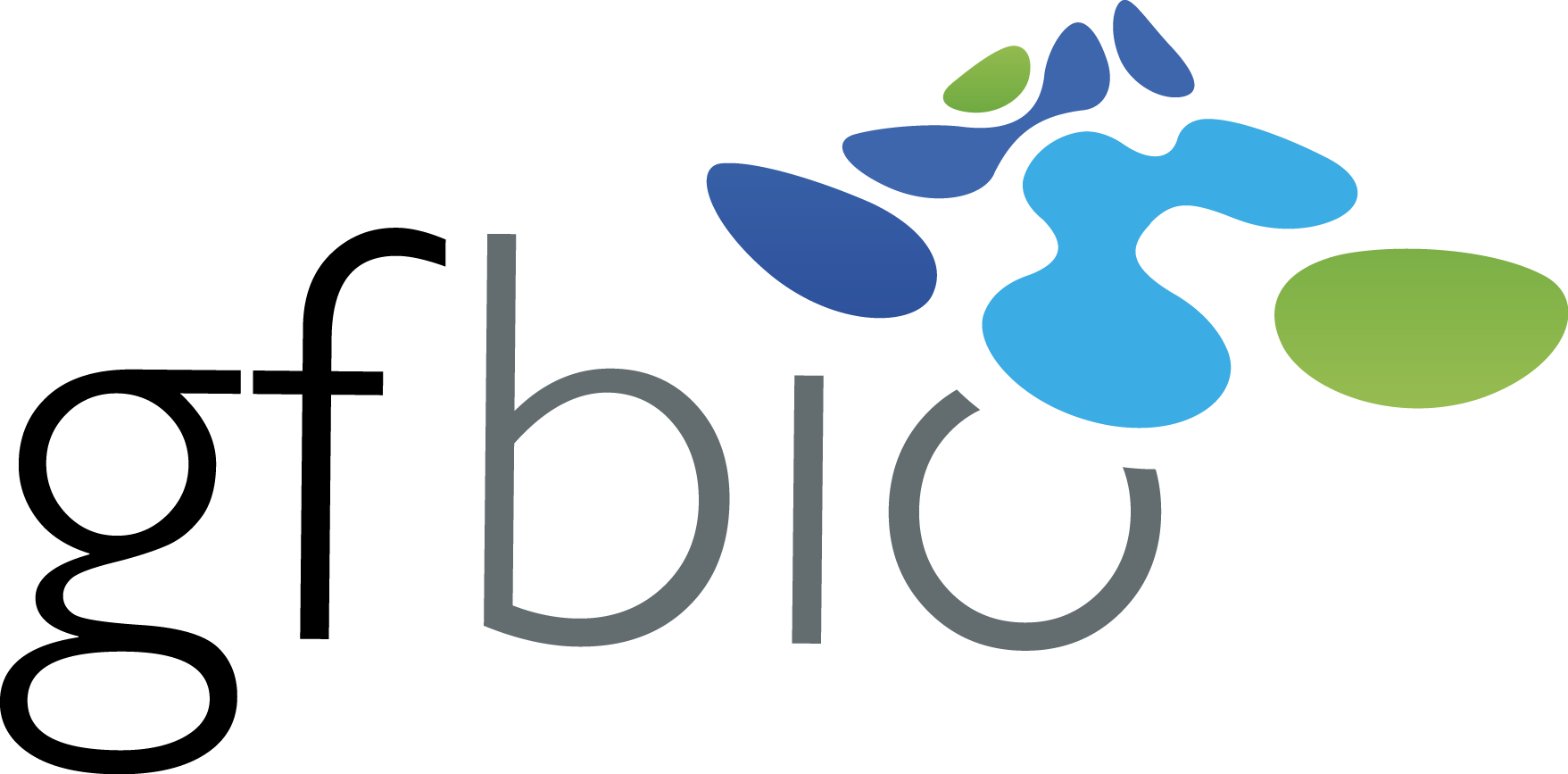
|
In close contact with gfbio we support the development of workflows and frameworks for research data management in the environmental and bioscience fields. |
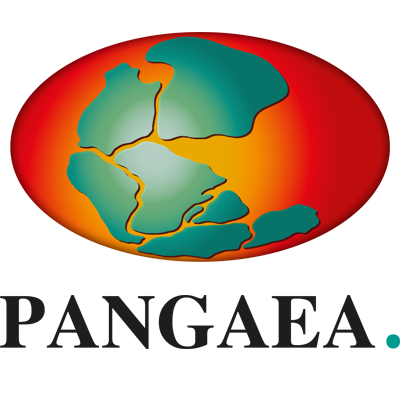
|
We actively support data publication workflows to the data repository PANGAEA and participate in the development of data curation workflows. |
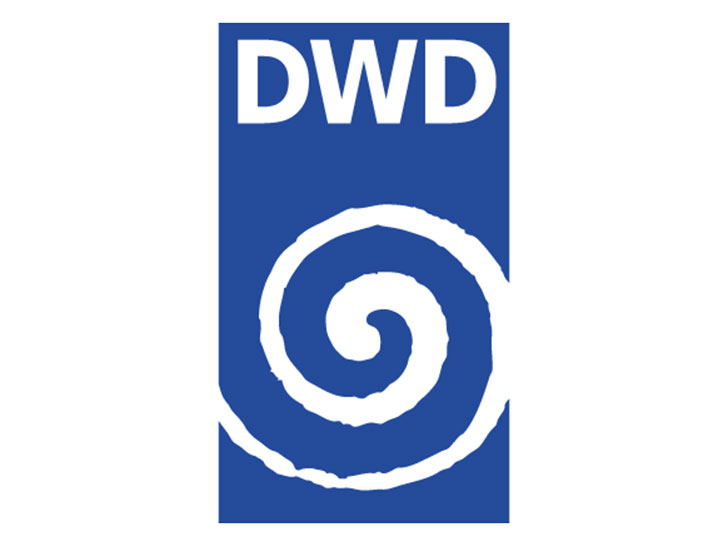
|
In cooperation with the German Weather Service (DWD) we can reprocess selected current and historical weather data and make them available for research at the UFZ. |
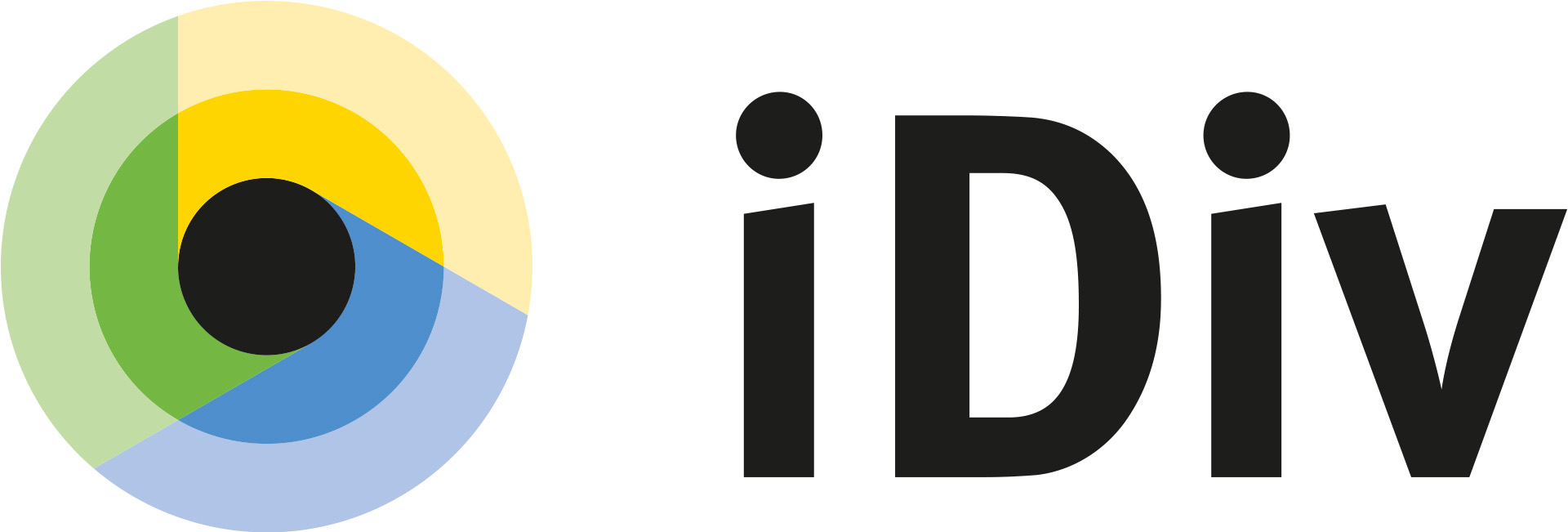
|
In collaboration with the German Centre for Integrative Biodiversity Research (iDiv) we provide software solutions to support research projects focused on biodiversity. |

|
We contribute our expertise to the initiative SaxFDM and represent the UFZ within the Saxon RDM community. |

|
We partner with the Institute for Applied Informatics (InfAI) in infrastructure development projects, e.g. BioMe, INTOB and the refinement of our timeseries data management infrastructures. |

|
The expertise of our partner 52°North flows into various projects, e.g. geodata infrastructure, sensor management system. |

|
The Open Geospatial Consortium (OGC) is a global organization that specializes in the development and promotion of open standards in the field of geoinformatics. Membership of the OGC gives the UFZ the opportunity to influence the design of all standards. Of particular interest is the Sensor Things API (STA) standard, an exchange format for sensor data. |






|
The five Helmholtz Incubator platforms - HIDA, HIP, HIFIS, HMC and HAICU - constitute a Helmholtz-wide network to expand the expertise in the field of information and data science and to foster collaboration across disciplines and research fields. The Helmholtz Association’s broad spectrum of activities ranging from big data analytics, supercomputing, the entire data lifecycle and software development, right up to artificial intelligence and robotics means that it is in an excellent position in the field of processing and analyzing large and complex quantities of data. Diverse possibilities arise in individual disciplines, as well as through their interaction. Each Center delegates top-level scientists to the Incubator; these scientists represent an enormous range of specializations covering a wide array of innovative skill sets. They are supported by recognized experts from research enterprises, renowned research institutes, and various consultancy companies. Contact our local Incubator representatives at UFZ |
